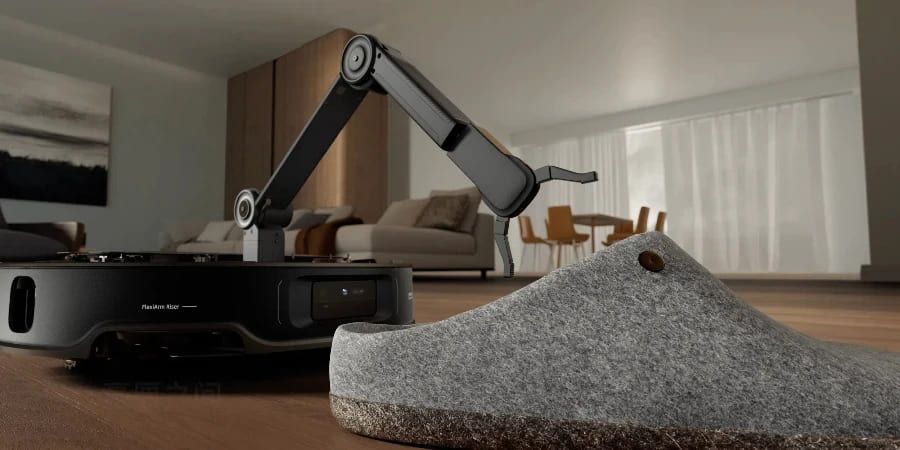On 4 March, 2025, Finland took a quantum leap by launching Europe's first 50-qubit quantum computer. This announcement further solidifies its place into becoming a leader into the quantum computing field. The venue in Helsinki was the site of the launch event that drew scientists, policymakers and industry leaders together to celebrate this historic achievement while discussing its implications for the future of computing, research and innovation.
A Brief Guide to Construction Jobs

1. A Quantum Leap for Europe
Say goodbye to the limitations of other continents, and hello to Quantum Computing.While classical computers use classical bits (0s and 1s) to perform calculations, Quantum Computers use quantum bits or qubits that can exist in multiple states at once. This allows them to solve problems that remain intractable even on the best supercomputers — problems like simulating molecular structures for drug discovery, optimizing large-scale systems and speeding up artificial intelligence.
Finland's 50-qubit hybrid quantum computer, built by a group of the country's top research institutes with cooperation from some of its main tech companies, is a significant leap forward for Europe. The victory of Helsinki is a sign of Europe's escalating ability to compete in the high-tech field, after recent years dominated by the United States and China in quantum computing. The new quantum computer will help speed up research in fields like materials science, cryptography, and climate modeling, giving European scientists and businesses a powerful tool to address some of the world's most pressing problems.
2. Finland's Quantum Initiative Strengths
The success story of Finland in quantum computing is primarily due to its focus on the research and development aspect and a collaborative approach towards innovation. Over the last 10 years the country has invested billions into quantum research, creating partnerships between academia, industry and government. This ecosystem has allowed Finnish researchers to achieve fast advancements in quantum hardware, software, and algorithms. The followings are its key strengths.
Stability and Scalability: Quantum systems are incredibly sensitive, needing very low temperatures and tight control to stay coherent. To achieve this, Finnish scientists managed to address these challenges by using advanced cryogenic technology and error-correction techniques that make sure that the computer makes reliable calculations. And the system is also built to scale, and can be expanded to pack in even more qubits in the future, giving the system even more computational capabilities.
Emphasis on Real World Applications: Although quantum computing remains at an experimental project state, Finland's 50-qubit computer has already found its way into real world research and industrial projects. It is also being used to model complex chemical reactions, optimize supply chains, and develop new encryption schemes. Our focus is on usability, which means that the technology will deliver value to the society and economy.
3. Implications for the Future
The unveiling of Europe's first 50-qubit quantum computer has ramifications for the continent's technological and economic landscape. Finland's push to become a leader in quantum computing will help reduce Europe's dependency on foreign technology and bolster European competitiveness in the overall technology market in the world. It is also expected to draw investment and talent to the region, further accelerating innovation and development.
In short, Finland's deployment of Europe's first 50-qubit quantum computer marks a defining moment in the evolution of technology. It highlights the country's determination to innovate and its capacity to compete on the world stage. With the advent of quantum computing, Finland's milestone will act as the spark for others, prompting nations to dive deeper into this game-changing technology. Quantum computing has the potential to address some of humanity's gravest challenges, making it a game-changing technology that will define science, industry and society in the future — and Finland is already at the forefront.


Guess you like
-

TECNO Released Triple-Fold Phone Under the Help of TIANMA
-

Pizza Hut: From Kansas Storefront to Global Pizza Giant
-

KFC's Journey from Kentucky to the World
-

Natural Yeast Extraction: What Is Angel YE ?
-

Ultimate Guide to Must-Have Sneakers for Every Style and Purpose
-

How Subway Became the Sandwich Empire
Trending
-
1

Kim Kardashian vs. Kylie Jenner: A Deep Dive Into Which Beauty Empire Deserves Your Money
-
2

Finding the Perfect Foundation for Students: Gentle, Affordable, and Skin-Friendly Options
-
3

Avoid These Kylie Cosmetics Products: A Honest Review
-
4

Why Has Dior 999 Remained an Iconic Lipstick for Decades
-
5

Why Can Chanel No. 5 Endure Forever Among So Many Perfumes
-
6

Best Makeup Foundations for Flawless and Radiant Skin
Featured?Articles
-

Kim Kardashian vs. Kylie Jenner: A Deep Dive Into Which Beauty Empire Deserves Your Money
-

Finding the Perfect Foundation for Students: Gentle, Affordable, and Skin-Friendly Options
-

Avoid These Kylie Cosmetics Products: A Honest Review
-

Why Has Dior 999 Remained an Iconic Lipstick for Decades
-

Why Can Chanel No. 5 Endure Forever Among So Many Perfumes
-

Best Makeup Foundations for Flawless and Radiant Skin


